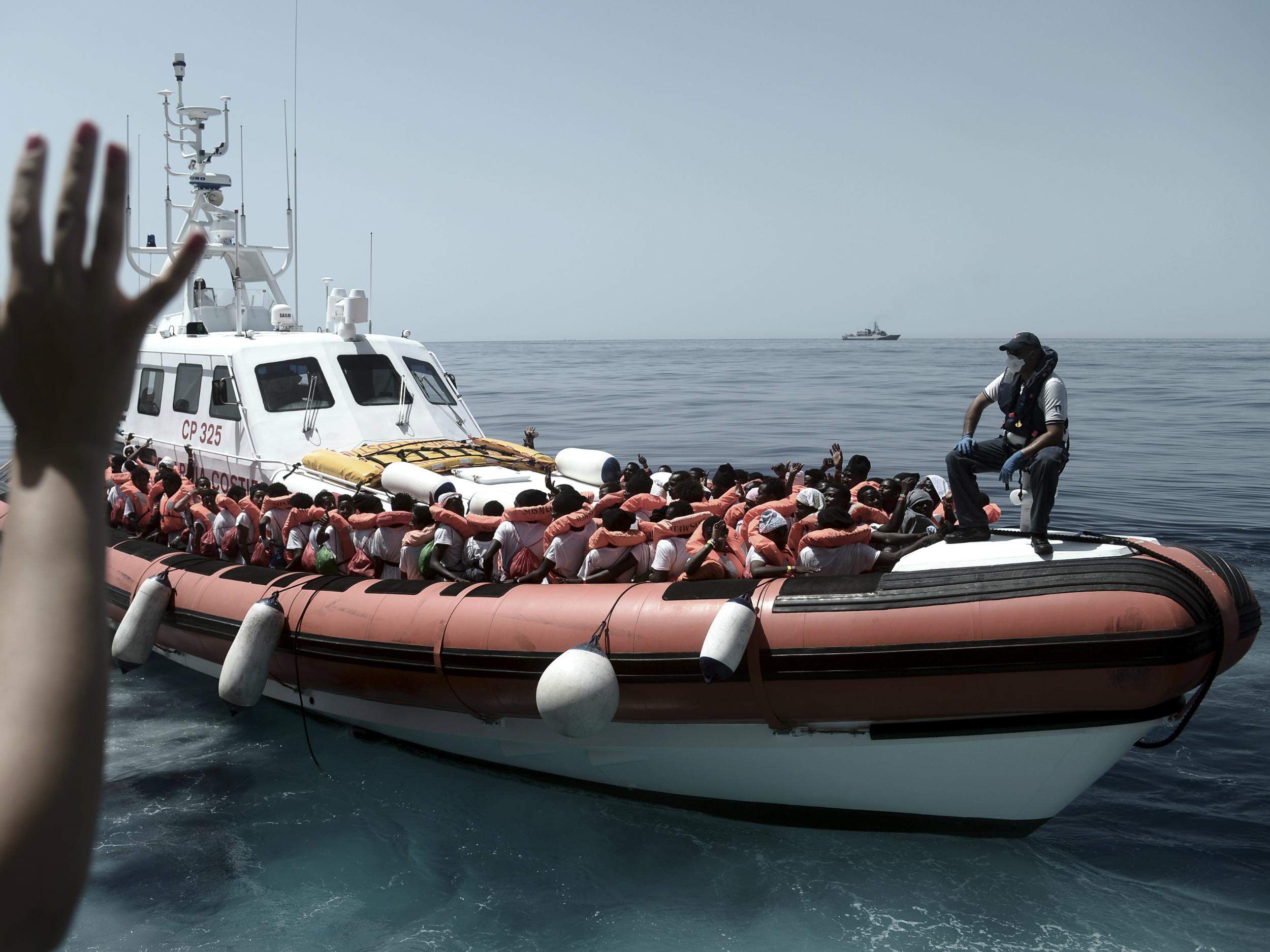Damning UN report says three people will become displaced in the time it takes you to read this headline
Just 100,000 refugees were resettled by international community in 2017, while 3m new refugees were created

Your support helps us to tell the story
From reproductive rights to climate change to Big Tech, The Independent is on the ground when the story is developing. Whether it's investigating the financials of Elon Musk's pro-Trump PAC or producing our latest documentary, 'The A Word', which shines a light on the American women fighting for reproductive rights, we know how important it is to parse out the facts from the messaging.
At such a critical moment in US history, we need reporters on the ground. Your donation allows us to keep sending journalists to speak to both sides of the story.
The Independent is trusted by Americans across the entire political spectrum. And unlike many other quality news outlets, we choose not to lock Americans out of our reporting and analysis with paywalls. We believe quality journalism should be available to everyone, paid for by those who can afford it.
Your support makes all the difference.The number of displaced people around the world reached a record high of 68.5 million last year, the UN has revealed in a damning new report that also shows a dramatic drop in the willingness of wealthy nations to welcome refugees.
Intractable conflicts in Syria, South Sudan, the Democratic Republic of Congo and Myanmar were among the greatest drivers of movement, forcing people to leave their homes and in some cases their countries.
The UNHCR said the number of refugees – those who fled across state borders – rose by 2.9 million from 2016, the greatest increase seen in a single year in the history of the UN’s refugee agency.
Yet at the same time, the number of people successfully resettled under UN refugee programmes dropped by more than 40 per cent to just 100,000, amid a growing backdrop of nationalism and isolationism across the developed world.
The UN report, released on the eve of World Refugee Day, shows that there were 25.4 million refugees in the world in 2017, and another 43.1 million internally displaced people. Combined, they make up one in every 110 people on the planet.
Just over 16.2 million were freshly forced from their homes in 2017 alone, meaning that a new person became displaced every two seconds. And the number of asylum-seekers, trapped in limbo awaiting the outcome of their claims, rose above 3 million.
But the global scale of the problem is not being matched by an international response, according to the UN high commissioner for refugees, Filippo Grandi.
Vast numbers of refugees are living in just a handful of countries closest to conflict zones, with the likes of Lebanon, Jordan, Turkey, Uganda and Bangladesh taking people in at far higher rates than the global average.
“We are at a watershed, where success in managing forced displacement globally requires a new and far more comprehensive approach so that countries and communities aren’t left dealing with this alone,” Mr Grandi said.
Mr Grandi also highlighted the helplessness of those who had “no choice” but to flee their homes. Of the global displaced population, a staggering 53 per cent are children. Their number, the UN said, includes many who are unaccompanied or separated from their families.
And among the specific case studies highlighted by the report were the Rohingya, 655,000 of whom fled Myanmar for neighbouring Bangladesh in the space of just three months from late August 2017.
A senior UN official has previously described violence towards the Rohingya by the Myanmar army as a “textbook case of ethnic cleansing”. The government of Myanmar has for generations refused to acknowledge the Muslim minority’s right to citizenship in northern Rakhine state, insisting they are illegal immigrants from neighbouring states.
“Nowhere is the link between statelessness and displacement more evident than for the Rohingya community of Myanmar, for whom denial of citizenship is a key aspect of the entrenched discrimination and exclusion that have shaped their plight for decades,” Mr Grandi said.
The UN report does conclude with what Mr Grandi calls a “reason for some hope”, however, pointing towards a shared agreement currently being drafted by the UN in response to the global refugee crises. Dubbed the Global Compact on Refugees, it would see displaced people resettled more equitably and put in place basic standards for things like healthcare access from the moment refugees cross into another country.
“Today, on the eve of World Refugee Day, my message to member states is please support this,” Mr Grandi said. “No one becomes a refugee by choice; but the rest of us can have a choice about how we help.”
Join our commenting forum
Join thought-provoking conversations, follow other Independent readers and see their replies
Comments